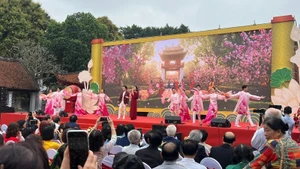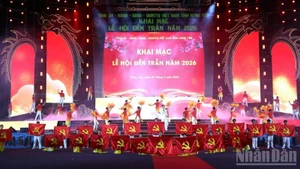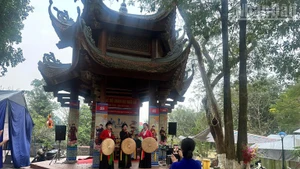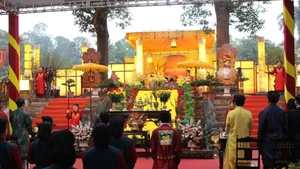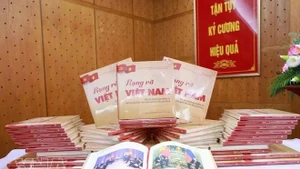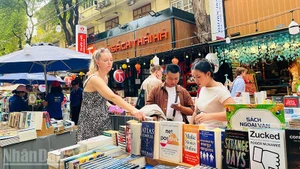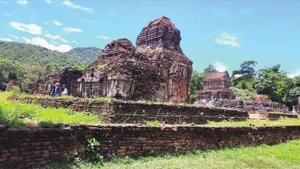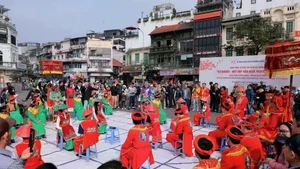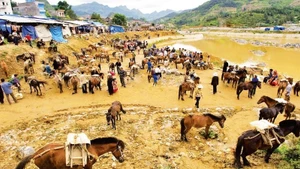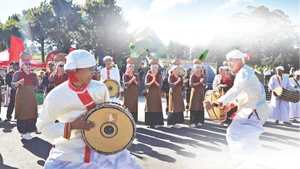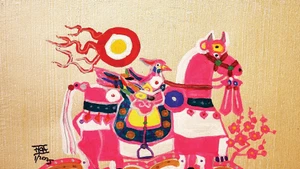In his opening speech, poet Nguyen Quang Thieu, Chairman of the Viet Nam Writers’ Association, shared candid and profound reflections on the 50-year journey of Vietnamese literature since national reunification.
He noted that after 1975, the realities of national life opened up a vast and diverse canvas — from the process of renovation (Doi moi), industrialisation, to thorny issues such as corruption, environmental degradation, and crises of trust. All these have provided abundant, vivid material for literary creativity.

Over the past five decades, Vietnamese literature since 1975 has recorded important achievements in both creative writing and literary theory and criticism. It has left clear imprints in promoting national identity, expanding dialogue with the world, innovating genres, and enhancing professionalism.
Since 1975, literature has never stood apart from life but has instead reflected, vividly and authentically, the country’s progress: from economic renovation and international integration to urbanisation, industrialisation, social change, customs and traditions, family relations, education, and environment.
Numerous studies have also revisited literature before 1975 in both the North and South with a more archival, objective spirit, re-evaluating what had been forgotten. This not only helps complete the historical account of national literature, but also allows later generations to gain a more accurate understanding of tradition, while selectively absorbing external influences to enhance internal strength.

A common thread in more than ten papers and opinions presented at the symposium was the spirit of serious, systematic, and responsible reflection on the half-century journey of Vietnamese literature. From different approaches — historical, theoretical–critical, and creative — scholars and writers all expressed concern for the dynamics of literature in the country’s renewal process, especially the transformation of artistic thinking and the creative workforce after 1975.
The symposium was not only a summation of a historical period but also a call to today’s writers to recognise their responsibility for the future of national literature.
Confronting the transformations of the digital era, the shifts in reading culture, and evolving values of life, Vietnamese literature must continue to preserve its “inner flame” in a manner that is authentic, creative, and humanistic — so that it may guide, inspire, and enrich the soul of the Vietnamese people in the new era.
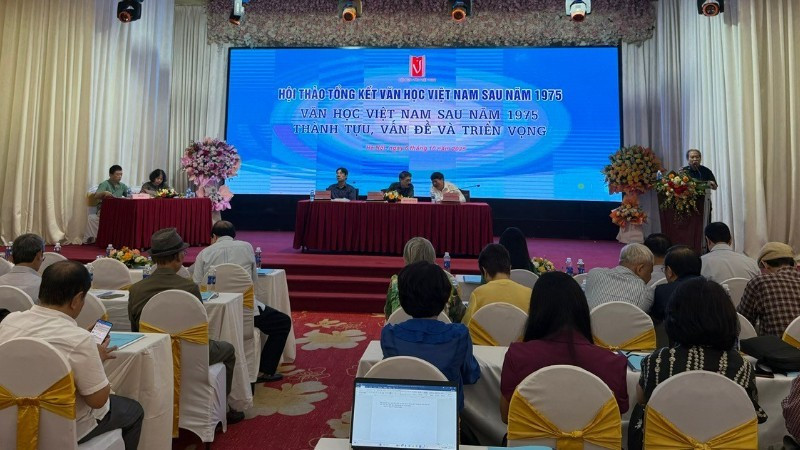
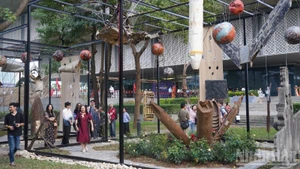
![[In Pictures] Procession of giant “Lord Pigs” weighing over 200kg at La Phu Village Festival](https://en-cdn.nhandan.vn/images/9f233ae74386156ace55673ec5a8ea373e7bb5df2274800bfd51bda6ec86d946ac1c392948518c6b0493c4028e062086d61e162f1bde5f06b033cfb48e75970298e3f24f2e8ecbfa7996f109382f9907/ruoc-lon-la-phu-11-4212.jpg.webp)
